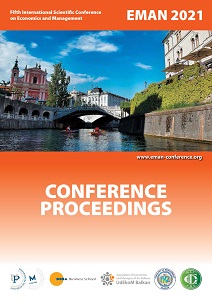RANDOM WALKS AND MARKET EFFICIENCY: GOLD, PLATINUM, SILVER VS ASIA EQUITY MARKETS
RANDOM WALKS AND MARKET EFFICIENCY: GOLD, PLATINUM, SILVER VS ASIA EQUITY MARKETS
Author(s): Rui Dias, Paulo Alexandre, Cristina Vasco, Paula Heliodoro, Hortense Santos
Subject(s): Social Sciences, Economy
Published by: Udruženje ekonomista i menadžera Balkana
Summary/Abstract: This paper aims to analyze the efficiency, in its weak form, in the markets of commodities, Platinum (London Platinum Free Market $/Troy oz), GOLD (Gold Bullion LBM $/t oz DELAY), SILVER (Silver – Zurich SW. francs/kg) and the stock markets of KOREA, CHINA, JAPAN, PHILIPPINES, INDONESIA, from January 1, 2019 to October 20, 2020. To perform this analysis, different approaches were undertaken to assess whether: (i) the Gold, Platinum, Silver markets have more robust levels of efficiency when compared to Asian stock markets? The results of the variance test indicate that the random walk hypothesis is rejected in the Gold, Platinum and Silver markets, as well as in the Asian stock markets, with no differences between markets. These findings show that profitability is auto-correlated over time, with a reversal of the mean, because the values of variance ratios are lower than the unit, i.e., price fluctuations are not i.i.d. The results have significant implications for investors, as market inefficiency can affect the domestic and international flows of an economy. In conclusion, the hypothesis of market efficiency, in weak form, may be questionable, since the prediction of the movement of a given market can be improved if the out-of-the-current movements of the other markets are considered, thus enabling the occurrence of arbitrage operations. These findings also make room for regulators in these markets to take steps to ensure better information between these markets and international markets.
Book: EMAN 2021 / 5 – Economics & Management: How to Cope with Disrupted Times - CONFERENCE PROCEEDINGS
- Page Range: 55-70
- Page Count: 16
- Publication Year: 2021
- Language: English
- Content File-PDF

